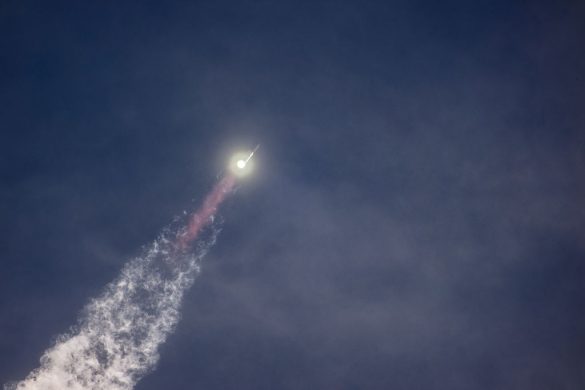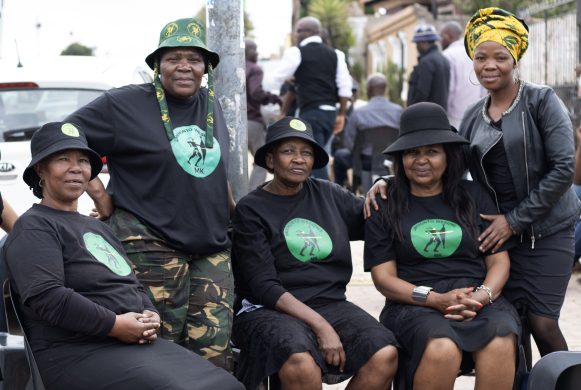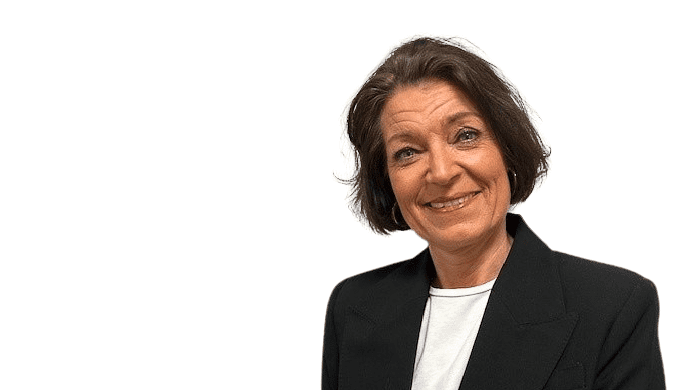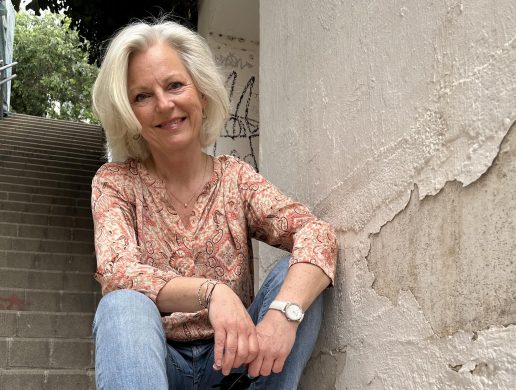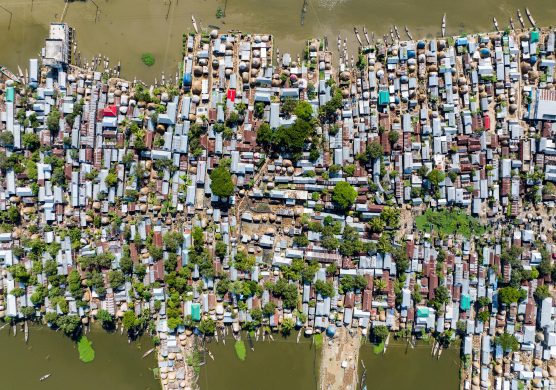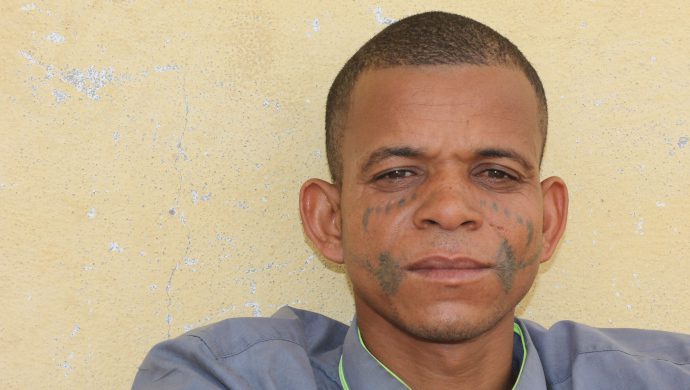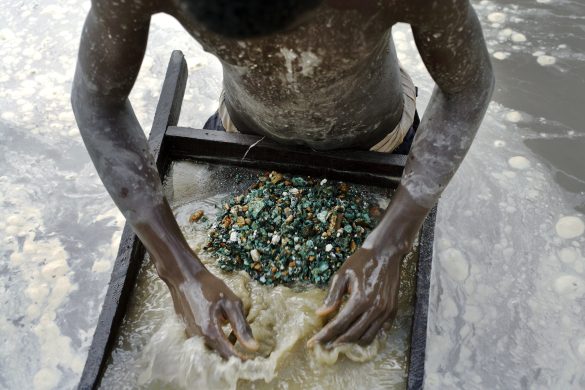Dokument
På opfordring fra flere og i betragtning af talens bistandshistoriske relevans bringer vi udenrigsminister Per Stig Møllers tale på “Konferencen om udviklingsbistand som et middel til at forebygge terrorisme”. Den fandt sted 4. september i København med Udenrigsministeriet som arrangør. Talen, der er på engelsk, er gengivet i sin helhed efter Udenrigsministeriets hjemmeside.
———————–
The conference on “Development Assistance as an Instrument in the Prevention of Terrorism” is an attempt to prompt an international discussion and dialogue on how development assistance can be used as an active foreign policy instrument in the fight against terrorism.
Some incidents in history stand out as defining events. September 11 was such an event. It is one of those events, where everybody knows, where they were, when they heard the news. Personally I was near Pentagon and saw the fire and smoke from the explosion. These attacks shrouded by sinister symbolism struck at the very foundations of our society. It was a day that left thousands behind in suffering and sorrow.
The clouds from the World Trade Centre and from Pentagon separated civilised nations from terrorist movements. It was a strike against civilisation that at the same time gave birth to a world coalition against the evil, which will tear away our freedom to choose the life and society we want.
Precisely this is fundamentally what it is all about. The terrorist movements do not accept our way of life, our individual freedom, our liberty to chose, to doubt, to think, to change the society and express ourselves in art and in politics. To protect these freedoms the United Nations stood together after September 11 and made a firm resolution against terrorism.
We have succeeded in stopping many planned attacks but though the total number of successful international terrorist attacks and casualties is down from 2001, they strike again and again, and the potential terror threat has not been reduced. In fact the technical, financial and organisational ability of international terrorism has never been greater.
Thus, if this new strain of terrorism is left unchecked it will grow to haunt us every day. We will meet wanton destruction, pain, and death in the morning news and papers, on the 12 o’clock radio news and on prime time TV. September 11 signalled the break through of terrorism and extreme fundamentalism with ambition and ability to operate on a global scale.
This is why our fight against terrorism must be judged by our will to act through action, by our resolve to persist in the pursuit of evil and by our success in stamping out the support for terror.
There are no easy solutions, no quick fixes or actions, that can suddenly make the threat of terrorism disappear. In stead we must employ all available instruments in a comprehensive and sustained effort to challenge back the evil and to defend the ideas and values of our society – freedom, democracy, justice – and provide new guards for their future security.
Until now our police, military and intelligence efforts have been crucial in our response to the new terrorism. And for good reasons. But only through links to broader political, economic and social interventions can we hope to pull together the strategic framework needed for a long-term solution. Like a cancer we cannot go on just carving away the disease when it surfaces. In stead we must eliminate the root causes that feed the machinery of violence, this cancer of the global society.
Much has been done to study the direct links between terrorists and development issues. The results so far are mixed. However, if we only interpret today’s terrorist threat in the light of previous experiences, we will make a monumental mistake.
The world is a dynamic place. Our actions today are set to become part of our future tomorrow. And we have to look into tomorrow to act correctly today. We have to make a toolbox with many different tools in it, if we shall stop the terrorism and the recruitment of terrorists effectively.
One of the tools is development assistance. It can play an important role in combating terrorism, because it is all about change. Changes in power relations, changes in economy, and changes in living conditions. Its potential to turn repressive, underdeveloped and inhumane societies makes it an indispensable element in any comprehensive strategy for combating terrorism.
What is important is to look at the prerequisites for making development assistance an effective tool in the fight against terrorism. Here I would like to suggest the following five guidelines:
First, assistance must be focused on terrorist constituencies – those who lend tacit support to or harbour sympathy towards terrorists and their stated goals
Second, assistance must be based on partnerships of opportunity; a clear political or a clear community based commitment to work towards good governance, democracy and human rights
Third, assistance must target core grievances of people within areas such as education and health or issues such as good governance, democracy and human rights
Fourth, assistance must be based on a true partnership for mutual benefit and with strong ownership in both planning and implementation by the communities involved
Fifth, assistance must be based on a long term commitment to change from both the recipient and the donor side.
Development assistance is not only important because of its potential to alleviate poverty, impede suffering and restore human dignity. It is also a clear signal from the world’s rich countries to poor people all over the world, that we care. That we share and support their aspirations to lift themselves out of poverty. That hope prevails, and must be sustained.
This leaves us with another opportunity for using development assistance as an effective tool in combating some of the root causes of terrorism, by focusing on the human dimension of development. This includes fostering and supporting networks between people within a wide range of areas such as culture, religion, education and business.
Also the media area could offer good opportunities to bridge existing gaps in understanding. Here development assistance can work as seed money to support the development of platforms for intercultural dialogue, religious tolerance and mutual understanding.
Such targeted interventions could be especially useful in relation to the Arab world as Europe’s key neighbouring region. Here we seem to face a special challenge with widespread resentments within the Arab world towards the West. Often expressed through unforgiving fundamental criticism towards Western ideas and ideals.
Islam is one of the great religions of the world. It gives faith, imagination and hope to more than a billion people. Meanwhile we count the world’s terrorists by some thousands. It is clear that religion itself is not and must not be the issue. If we make it the issue, we will exactly lay the foundation of the war of religion, which the Islamic terrorists want to wage.
The majority of people, who can be described as Islamic fundamentalists, do not pursue violence. But with an increasing focus on cultural and religious factors in the Muslim world as well as in the West, hostility, and mistrust between the Muslim and the Western world will be growing at an alarming rate.
At the same time we have to face, that when thousands died in USA on September 11, ten of thousands of Arab Moslems took to the streets to celebrate. And nowhere else but in the Arab street is the hate to the Western world and the direct threat from terrorist groups against the West more acute. How could it come to this?
One explanation is surely the failings of the socioeconomic development of the Arab world. We find countries that seem immune to the opportunities of globalisation. Governments that ignore domestic and international calls for democracy and good governance. And people who increasingly turn towards religious and ideological fundamentalism, and who seem ready to accept terrorism as a legitimate weapon against their own society and ours.
That is why our Arab initiative is called: “Partnership for Reform and Progress”. You have to have both, if you want to move the grass under the feet of the terrorists.
This development calls for political leadership, that can ensure a political atmosphere, that will allow both sides to engage in a peaceful dialogue on underlying difficulties and frustrations in stead of playing out the differences into the hands of extremists and terrorists.
At the same time Europe must make it clear, that it cannot, and it will not silently accept the lack of democracy and basic human rights, that engulf large parts of the region. There is no safety or stability to be found in the epidemic waste of the energy, education and initiative of the people in the Arab world.
There must be room for consequence in the political dialogue on how to make progress through partnerships while at the same time respecting the difference of cultures and religions.
It will not be an easy task. There will be countries and governments who do not wish to engage in any dialogue on change. On the other hand, we must send a clear signal to the people of the Arab world that the West fully support their aspirations and hope for freedom and democracy.
Without fundamental reforms the Arab world will continue to lag and even fall further behind the socioeconomic development of other regions. It is exactly because of that, that the Arab world in the first place fell behind, and it is in the second place because it fell behind, that terrorists are recruited in and from this part of the world.
One way to begin would be by focussing at first on what has been called the “vanguard of the willing”. To start the most difficult parts of the dialogue with those communities and those countries that themselves have seen the need for change.
This is the philosophy behind the reorientation of the Danish government’s policy towards the Arab world: To develop closer cooperation with the positive energies in the Arab world supporting reform and development, modernisation and democratisation.
Also EU’s efforts in the area must be enhanced. Already during the Danish EU-Presidency we started the preparation for the new Partnership for Progress and Reform. But the Danish government will also itself pursue closer ties and intercultural dialogue based on mutual respect and the acknowledgement of cultural and religious differences within the context of universal human rights.
Whatever our civilisation and religion is, we have all subscribed to these rights as members of the United Nations. Other target areas will include support for civil society, freedom of the press, legal reforms and the fight against corruption.
Another important area are so-called weak and failed states. As international bilateral assistance is increasingly focussed on good performers, countries such as Sierra Leone, Somalia and Congo stand to be left behind. Afghanistan – which allowed al Qaida to grow strong – clearly demonstrated the dangers embedded in allowing weak and failed states to develop.
The terrorist movements want to take these countries over. They want to destroy those powers in the fragile states, who want to stabilise their country, build democracy and strengthen the economy. You may here think of for instance Indonesia, Pakistan, and the Philippines. We must develop means and assistance to help such fragile states against their enemies.
An increased division of labour between bilateral and multilateral donors will be another way of helping. Large multilateral donors such as the EU often have additional resources compared to the bilateral donors that give them a comparative advantage in the paramount effort to stabilise such failing and fragile states.
If you ask me, if it is possible to eliminate terrorism through development assistance – my answer is no! There are far too many variables for any one instrument to be able to curb terrorism.
But if you ask me if it is possible to win the war against terror by war – my answer remains no! Only through a creative and flexible approach using all available instruments can we ever hope to be able to win the fight against international terrorism.
Thus, I will appeal to you to help us make this conference a step towards the victory of civilisations against blatant terrorism by showing that a determined international community can act together! If we won’t, we cannot, and if we cannot, civilisation and freedom has lost to destruction and totalitarianism.
We will not be able to root out the terrorism neither today, nor tomorrow. But if we don’t start now with partnerships, dialogues, and assistance, it will be a long devastating and bloody war with a lot of innocent lives lost in all parts of the world. Therefore, the choice is easy: Let us stand together and fight this modern evil together. In this way we have succeeded before, and we can do it again.



